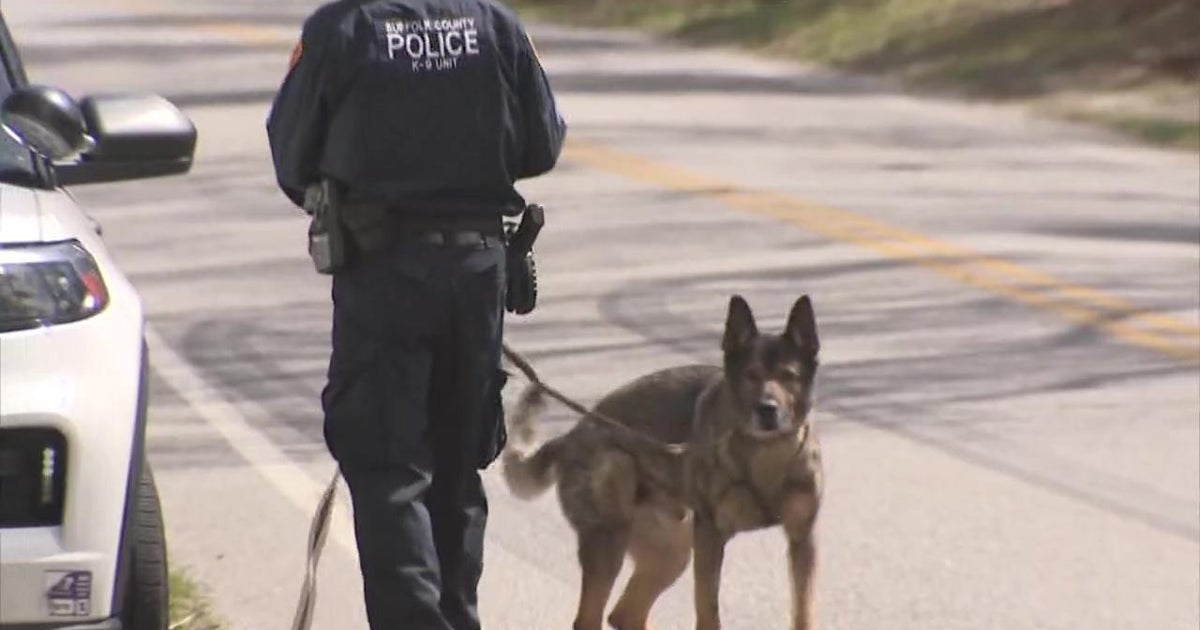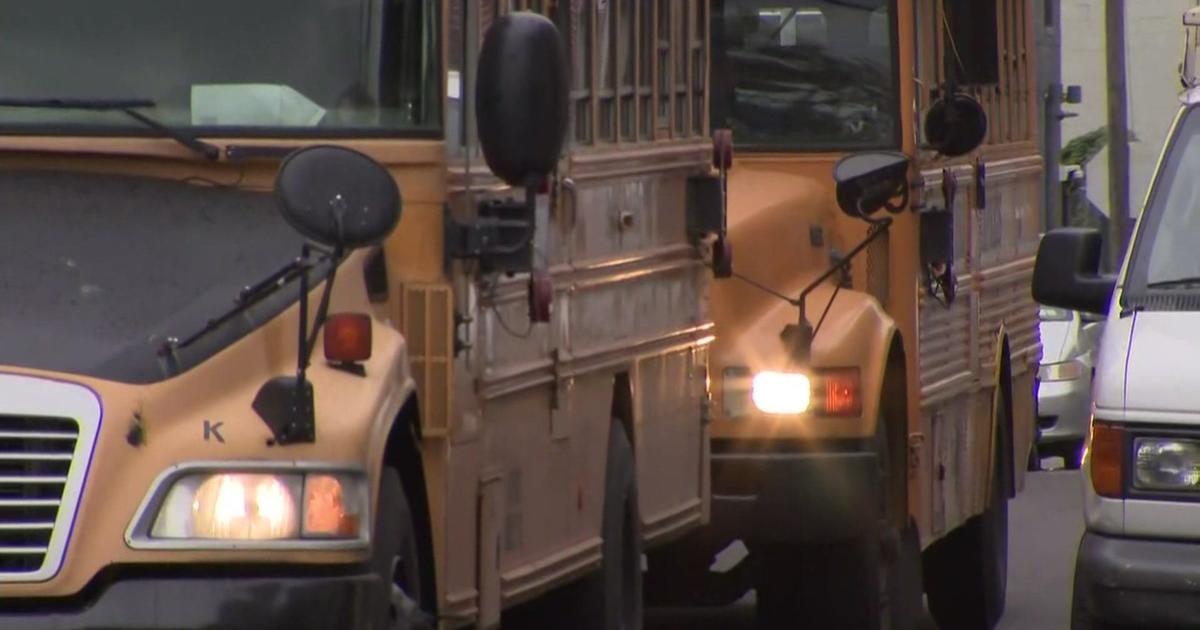Texas Begins Long Road To Recovery In Harvey's Wake
HOUSTON (CBSNewYork/CBS News/AP) — A city that lost its drinking water system is struggling to restore service and a crippled chemical plant that twice has been the scene of explosions remains a concern nine days after Harvey ripped across Texas.
Officials in Beaumont, population almost 120,000, worked to repair their water treatment plant, which failed after the swollen Neches River inundated the main intake system and backup pumps failed. The Army Corps of Engineers sent pumps, and an ExxonMobil team built and installed a temporary intake pipe in an effort to refill a city reservoir. Exxon has a refinery and chemical plants in Beaumont.
In Crosby, outside of Houston, authorities continued to monitor the Arkema plant where three trailers of highly unstable compounds ignited in recent days, sending thick black smoke and tall flames into the air. A Harris County fire marshal spokeswoman said there were no active fires at the facility, but six more trailers were being watched.
The soggy and battered city of Houston began burying its dead and taking steps toward the long recovery ahead. Friends and family gathered Saturday in Tyler to remember a former Texas high school football and track coach whose body was found Monday.
And in West Houston, two swollen reservoirs are expected to keep water levels high for about two weeks, and everyone has been ordered to evacuate."
George Blake went back to his home to salvage what he can.
"We had a bunch of stuff in the garage floating all over the place, you know?" Blake said.
Meanwhile, as CBS News' Danielle Nottingham reported, voices of praise rose up from churches around the Houston area for the National Day of Prayer Sunday, for victims and survivors of Hurricane Harvey.
"We come to you with aching hearts searching for healing and hope that only you can provide," said Texas Gov. Greg Abbott.
Abbott estimates the damage from Hurricane Harvey could total $180 billion -- more costly than hurricanes Katrina or Sandy -- and of course, many communities are nowhere near out of the woods.
CBS News confirms the number of storm-related deaths stands at 45 as of Sunday morning. Also, fire officials in the community of New Waverly, about 55 miles north of Houston, said a 6-month-old baby was missing and presumed dead after being ripped out of its parents' arms and swept away by floodwaters, the Houston Chronicle reported.
Houston's school district said up to 12,000 students would be sent to different schools because of flood-damaged buildings. Harvey flooding is believed to have damaged at least 156,000 dwellings in Harris County, which includes the nation's fourth-largest city.
Kim Martinez, 28, waited Saturday for insurance adjusters to come to her Southbelt/Ellington neighborhood, a devastated middle-class area of southeast Houston.
"You can be prepared for anything but not a monster storm like Harvey," said her mother, Maria Martinez, 63.
Some were able to count their blessings even as they faced a daunting recovery.
"I'm just praying on some help right now so I can get this over, behind me and try not to think about it," said Georgia Calhoun, whose family is sleeping on air mattresses inside her damaged home after taking ruined furniture to the curb.
Not everyone was able to think about rebuilding yet.
About 200 people waved signs and shouted as they rallied Saturday outside a still-flooded subdivision in the west Houston suburb of Katy, demanding answers about when they will be able to return home. Houston Mayor Sylvester Turner has warned residents that their homes could remain flooded for up to 15 days because of ongoing releases of water from two reservoirs protecting downtown. Turner on Saturday ordered mandatory evacuations for an area that's been inundated by water from the reservoirs. About 4,700 dwellings are in the area, and Turner said about 300 people have refused to leave.
The school district assessed its own losses. Twenty-two of its 245 schools had extensive damage that will keep them closed for months. Though school is now set to start on Sept. 11, that could change.
President Donald Trump arrived in Houston Saturday for his second visit to the devastated region. He and first lady Melania Trump met with Harvey evacuees taking shelter at the NRG Center in Houston, where they spent time with children and helped to serve food. Later, they helped load trucks with relief supplies at a church in suburban Houston. They also visited Lake Charles, Louisiana, to survey damage.
About 1,000 evacuees remained at the George R. Brown Convention Center, down from a peak of about 10,000, city officials said.
NFL star J.J. Watt was out with his Houston Texans teammates Sunday, handing out 10 semi-trucks worth of relief supplies. He alone has raised more than $17 million for Harvey victims.
Also Sunday, Federal Emergency Management Agency (FEMA) Administrator Brock Long called Hurricane and Tropical Storm Harvey a "wake-up call" for state and local officials when it comes to budgets.
"It is a wake-up call for this country for local and state elected officials to give their governors and their emergency management directors, you know, the full budgets that they need to be fully staffed, to design rainy day funds, to have your own standalone individual assistance and public assistance programs," Long said on CBS News' "Face the Nation" Sunday.
"People cannot depend solely on the Federal Emergency Management Agency to, you know, be responsible for a majority," he said. "You know, states do a lot of work. They do a lot of work. But I think that we all have to collectively sit down after this event and figure out how to collectively improve."
When asked about Texas' preparations for Harvey, Long said the state is a "model."
"Governor Abbott, Chief Nim Kidd, those guys are a model," he said.
He added, "What we need are for elected officials at all levels of government to hit the reset button, sit down, evaluate where their programs are with their state emergency directors as well as their local emergency management directors, and make sure that they have everything they need to increase their levels of self-sufficiency."
With Congress set to return from its August recess with a busy September agenda, Long says the federal agency and the White House are working together to inform lawmakers about what sort of funding will still be needed.
"Obviously not only is the president fully engaged. You know, his staff, Tom Bossert, Secretary Duke, all of us are working together to correctly inform the Congress on how to give us the enduring authority to go forward and make sure that we meet the demands for not only Harvey but potentially threatening Irma out there as well," said Long.
"So I feel like what we have going on right now is an excellent communication, you know, with the Congress," he said. "And the Congress knows what needs to be done to make sure that we can meet the demands of what's going on."
President Trump has sent lawmakers a $7.85 billion request for an initial down payment for Harvey relief and recovery efforts, CBS News confirmed. The request, expected to be swiftly approved by Congress, would add $7.4 billion to rapidly dwindling FEMA disaster aid coffers and $450 million to finance disaster loans for small businesses.
Long said that while FEMA's federal assistance for individuals is "not going to be enough to make anybody whole," support from a variety of federal agencies is "a bridge to kick-start recovery."
"Federal disaster recovery support comes from a multitude of agencies. Also the SBA will be offering up low-interest loans to those as well because they have a disaster declaration. HUD funding kicks in. So what we have to do is help citizens understand what they're entitled to to kick-start their recovery."
Harvey came ashore Aug. 25 as a Category 4 hurricane, then went back out to sea and lingered off the coast as a tropical storm for days. The storm brought five straight days of rain totaling close to 52 inches (1.3 meters) in one location, the heaviest tropical downpour ever recorded in the continental U.S. National Weather Service meteorologists expect what's left of Harvey to break up and merge with other weather systems late Saturday or Sunday.
Another storm was churning far out over the Atlantic. Hurricane Irma was on a course that could bring it near the eastern Caribbean Sea by early this week. The Category 2 storm was moving northwest at nearly 13 mph (20 kph). No coastal watches or warnings were in effect.
(© Copyright 2017 CBS Broadcasting Inc. All Rights Reserved. The Associated Press contributed to this report.)



